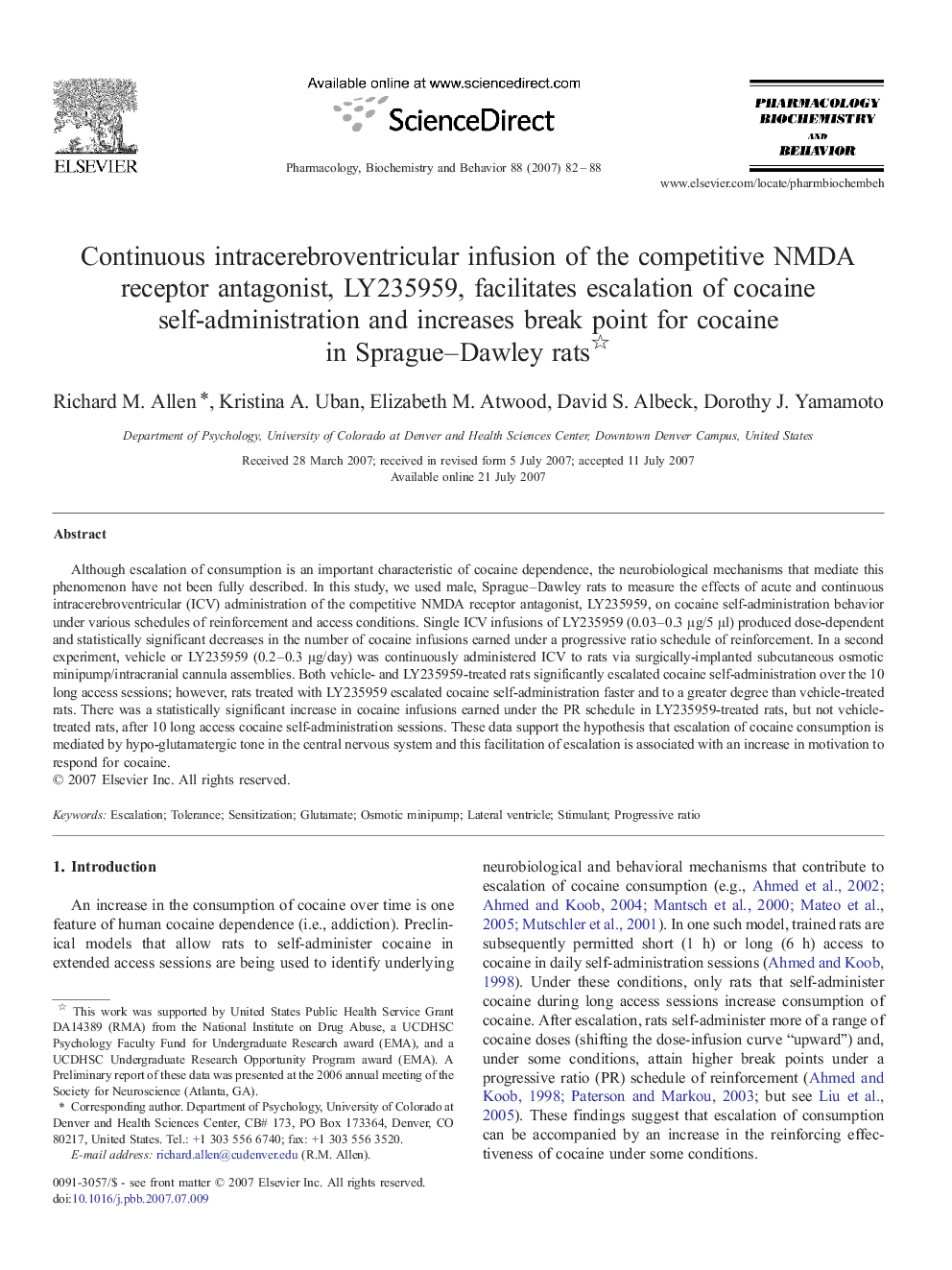| Article ID | Journal | Published Year | Pages | File Type |
|---|---|---|---|---|
| 2013769 | Pharmacology Biochemistry and Behavior | 2007 | 7 Pages |
Although escalation of consumption is an important characteristic of cocaine dependence, the neurobiological mechanisms that mediate this phenomenon have not been fully described. In this study, we used male, Sprague–Dawley rats to measure the effects of acute and continuous intracerebroventricular (ICV) administration of the competitive NMDA receptor antagonist, LY235959, on cocaine self-administration behavior under various schedules of reinforcement and access conditions. Single ICV infusions of LY235959 (0.03–0.3 μg/5 μl) produced dose-dependent and statistically significant decreases in the number of cocaine infusions earned under a progressive ratio schedule of reinforcement. In a second experiment, vehicle or LY235959 (0.2–0.3 μg/day) was continuously administered ICV to rats via surgically-implanted subcutaneous osmotic minipump/intracranial cannula assemblies. Both vehicle- and LY235959-treated rats significantly escalated cocaine self-administration over the 10 long access sessions; however, rats treated with LY235959 escalated cocaine self-administration faster and to a greater degree than vehicle-treated rats. There was a statistically significant increase in cocaine infusions earned under the PR schedule in LY235959-treated rats, but not vehicle-treated rats, after 10 long access cocaine self-administration sessions. These data support the hypothesis that escalation of cocaine consumption is mediated by hypo-glutamatergic tone in the central nervous system and this facilitation of escalation is associated with an increase in motivation to respond for cocaine.
